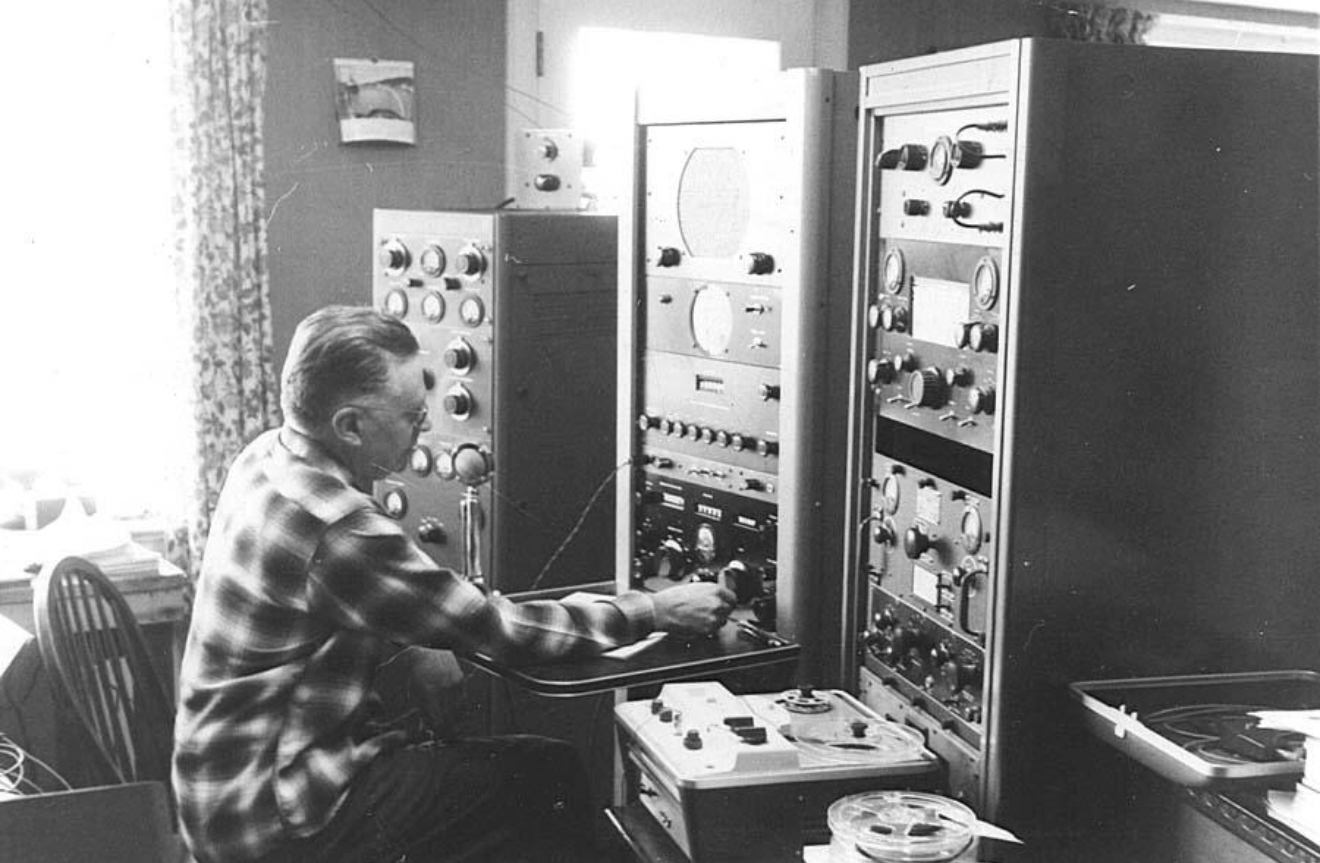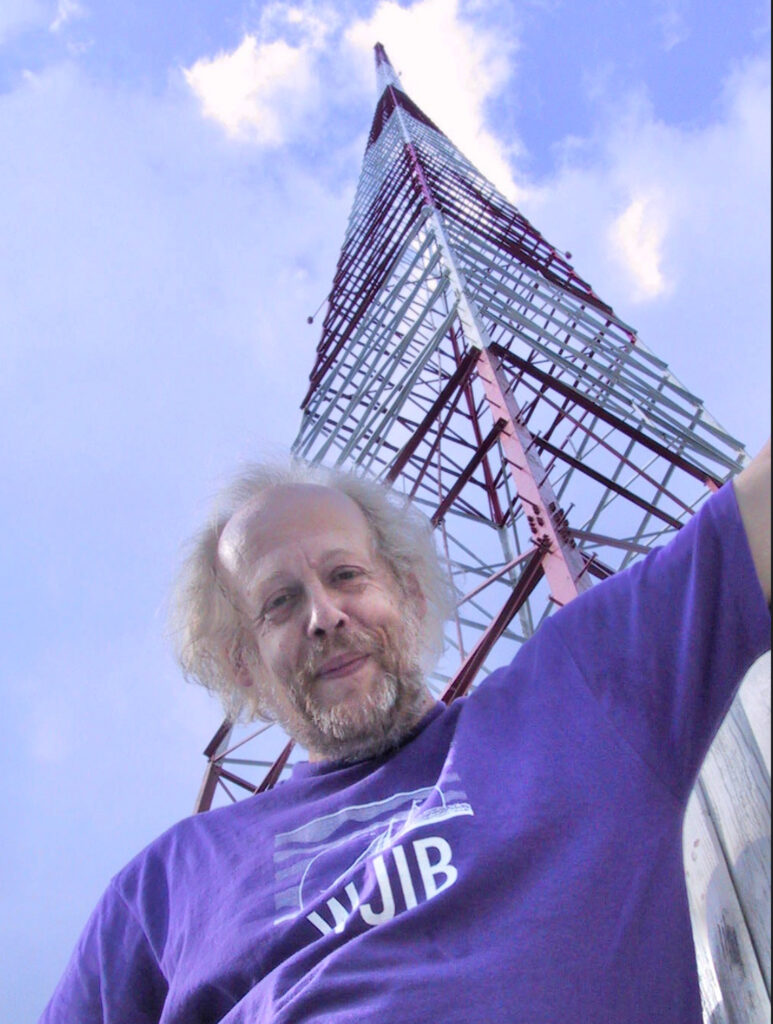ENTER BOB BITTNER
Bob was born in 1949 and grew up at Virginia Beach, Washington DC, and northern New Jersey, and then graduated from Rochester Institute of Technology (Rochester, NY) in late 1971.
His first on-air radio experience was reporting for his high school where he was heard several times on New York City’s WMCA-570. Then at college came a weekly on-air show on RIT’s college station WITR. But his first paid on-air gig started with his senior year in college at WCMF-FM in Rochester. Bob did the overnight shift, playing Black Sabbath, Blind Faith, the Mothers of Invention, Country Joe & the Fish, Led Zeppelin, none of the music one hears on today’s WJIB (excepting the Moody Blues!). Then in 1974, on to be Program Director/On-Air at WVOR-FM in Rochester, then on to WHOA-870 AM in San Juan, Puerto Rico, which at the time, was the island’s only English-language station. And it also played “good music,” as Bob was the Program Director there too.
Then in 1979 Boston called, and Bob felt the desire to return to the continental U.S. WBOS-FM hired him as mid-day DJ playing disco music. Later, at the same station he was playing country music. During the 80’s he played country music on WDLW-1330 (Waltham) and WCAV-FM in Brockton, as well as being Program Director and eventually playing 50’s & 60’s pop oldies on Newton’s WNTN-1550. Next he transitioned to become Program Director and on-air DJ at adult-standards WXKS-1430 AM when he was hired by Arnie Ginsburg.
This paragraph concludes answering a common question which was always posed to Bob: “You did work at the old WJIB-FM, didn’t you?” Answer: ‘no.’
This is when he won the bankruptcy auction and purchased WLVG-740 in Cambridge (now WJIB). After getting WJIB established, Bob purchased two dead off-the-air stations in 1993 and 1994; WKBR (1250 AM) in Manchester, NH and WNEB (1230 AM) in Worcester. He got them up and running and then later, sold them to two separate entities. He may not have sold those two had he thought of “listener-support” at that time.
WNEB/Worcester: Bob bought it being the high bidder, also thinking he would keep it. But the youth of Worcester helped him change his mind…fast! At the tower site (in the best section of town, by the way) about 2 miles west of city center), teenagers daily (uh, no, hourly) vandalized the tower site, trying to pull the tower down, having drug-parties next to the tower, cutting through metal fencing, and eventually a break-in and stealing $10k worth of equipment; specialized equipment that even likely puzzled their ‘fence’, for which the thieves probably got $30. for. According to Bob, it seemed the Worcester police had better things to do that day than to investigate the crime. They couldn’t have cared less. Bob finally got it back on the air and put it up for sale. Too bad, as that was a great repeater-station for WJIB, re-broadcasting WJIB’s signal into Worcester, which was done very economically. It became quite popular in the several months it was playing the “good music.” After selling WNEB, Bob drove east on Route 9 away from Worcester, headed home to Needham and never looked back.
Then in March 1997 Bob purchased talk station WJTO (AM-730) in Bath, Maine. Bob gradually turned WJTO to music after the talk shows’ contracts ran out and were not renewed. Bob and his architect-wife Raisa eventually moved to Maine, interconnecting WJTO and WJIB and doing all broadcasting from the WJTO studio overlooking a beautiful bay on the Atlantic ocean.
WJIB Boston-area listeners vacationing on the Maine coast enjoyed WJTO-730 while there, although WJTO went silent after Bob’s passing, the tower was dismantled, and the property is being sold.
WHY DOESN’T WJIB OBTAIN ADVERTISING INSTEAD OF “LISTENER SUPPORT”?
A logical question, but in the 34 years Bob owned WJIB, he said that not once had a person approach him saying they would like to do sales! DJ’s, yes; sales, no. And even if someone wanted to do sales, it would be appropriate for them to receive a base salary in advance of their productivity. Unfortunately most novice salespeople fail at selling well, and then it takes over a year to find out. Therefore, the chances of that advance salary being a good investment are slim. This is a problem that most stations face. Many of the successful stations have long-established sales teams and can afford such experimentation. Additionally, because with the arrival of superstores like Walmart, standalone local businesses have almost become extinct. Digital advertising is massive. And in Boston, the competition now includes cable TV, billboards, newspapers, and a dozen other radio stations. And WJIB is in an unusual situation… it’s too big for small local businesses and too small for big chain businesses.
Great variety of wonderful music aside, commercial-free is what listeners comment that they love the most!
Unlike stations who seem to play the same 200 songs over and over, ‘JIB minimizes repeats. While we have a total library of over 5,500 songs although about 1,700 are played each week. Songs generally repeat every three or four days, but our programming algorithm moves them around by daypart. For instance, if a song plays at 8 AM Monday, the next spin might be at 2 PM on Thursday. We could easily add more titles, but they would be less popular and less well-known songs with limited appeal which would dilute and weaken the station. If you listened 24 hours a day you could hear that song repeat every three or four days. But most people don’t.
Back in the 1950’s and before, when a fresh new hit song came out and the first artist had success with it, immediately other artists would do the same song. It was common to see 4 different artists have HITS with the same song in the same year! – It almost seemed like they had a shortage of songwriters in those days. That is a practice that faded out by the 1960’s. So if a different version of the song by another artist did the same song plays it might SEEM like the station is repeating when it is not.
The best mechanism for assuring musical variety is when listeners call in requests. It’s amazing how a song we totally forgot about gets suggested and we get positive feedback. And many of the stories about why the person loves the song are heartwarming.
Are we 100% happy with the music mix? Never! – – (Always trying to tweak it to perfection).
Bob passed away in May of 2023 and his stations were kept going for a time by his widow Raisa and engineer Bob Perry. In April 2024 long-time Boston broadcaster John Garabedian bought WJIB and continues to build it up. Meanwhile, WJTO, WLAM, and WLVP went off the air and the remaining assets are being sold.


